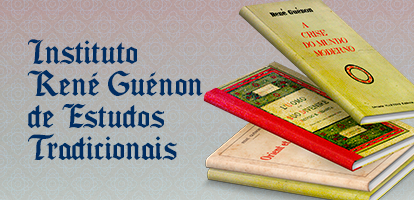The idea of this book goes back to 1981, when we intensely studied the masterly works of René Guénon . His work was something unknown and truly revolutionary for us intellectually, in the etymological sense of a return to the origins.
Several of Guénon’s books denounce modernity as being a monstrosity, the result of a rupture with all authentic traditions of humanity from its early origins. On the other hand, Guénon rescued for the West its true traditions, concordant in essence with the Eastern doctrines.
“Democracy” is just a modern tool in the service of materialism, of the massification of ignorance and mediocrity: its fundaments cannot seriously support themselves, as demonstrated on the very first lines of this book, and, notwithstanding, these fundaments have become true taboos. No one can criticize democracy without soon being labeled a “Nazi” , be it by the left wing or be it by the so-called liberals.
However, due to his high function and intellectual qualification, René Guénon addressed himself exclusively to a select minority. A plot of silence surrounds his works for almost a century, with the result of him being unknown, in spite of the importance of his books. Our aim is to reach a considerable number of people potentially capable of understanding the motives and backstage of the “democratic” farce tragically unrolling before our eyes, as long as furnished with sufficient and necessary arguments and information.
“Do You Still Believe in Democracy?” is the, no doubt imperfect, result of the project of putting forward some of Guénon’s decisive arguments to all those capable of understanding them. If, on one hand, they cruelly unmask the democratic farce, on the other, they rescue the true everlasting values of humanity, i.e., the transcendence implied in all authentic religions and sacred doctrines.
But we shouldn’t limit ourselves to denounce of the “democratic” farce or, in other words, to its total lack of principles. It is also necessary to demonstrate, even if superficially, how and when this anomaly was conceived and implemented. With this goal in mind we will examine some decisive historic facts, as the birth of the protestant movement and its terrible consequences: the materialism and the restless fight against the true traditional religions and doctrines.
In no other place in the world the “democratic” (and protestant) idea went so far as in the United States, that nowadays commands with heavy hand the “globalization”. But, after all, what is this project of global hegemony? It is the imposition to all the countries, with no exception, of the materialistic and un-religious point of view of the “American democracy”. And for those countries that refuse to submit, the threat of invasion and military occupation.
The reader will be able to understand better the reasons and meaning of the “9/11” after he sees the causes and goals of the democratic ideology. The “9/11” is a typical American conspiracy , armed to serve as a trigger to the frontal war against all religions, in general, and Islam, specially.
As it is already an accomplished fact in Afghanistan and Iraq (Syria and Iran are the most probable next targets), the American-zionist goal is the invasion, occupation and imposition of the democratic ideology, with also, of course, the appropriation of natural resources of strategic importance, as oil and water.
The recent international political events aren’t isolated episodes or even steps in the geo-politic USA project. They are, as we can see in the next pages, something of incomparable wider scope, already announced in all the authentic traditional forms: the final war, with the materialistic point of view fighting all the true religions and doctrines (in last stance, fighting against God, as if it was a possibility), what represents nothing less that the end of a cycle of this mankind, with the advent of the Antichrist.
Luiz Pontual





